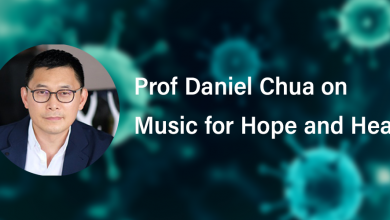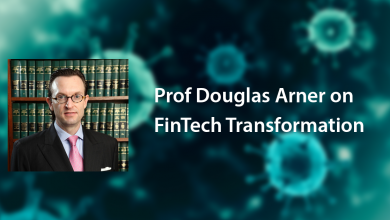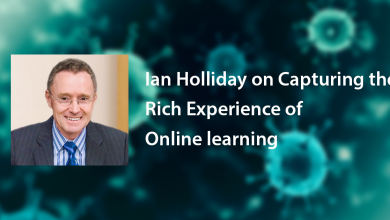Prof Tatia Lee on coping with isolation and loneliness
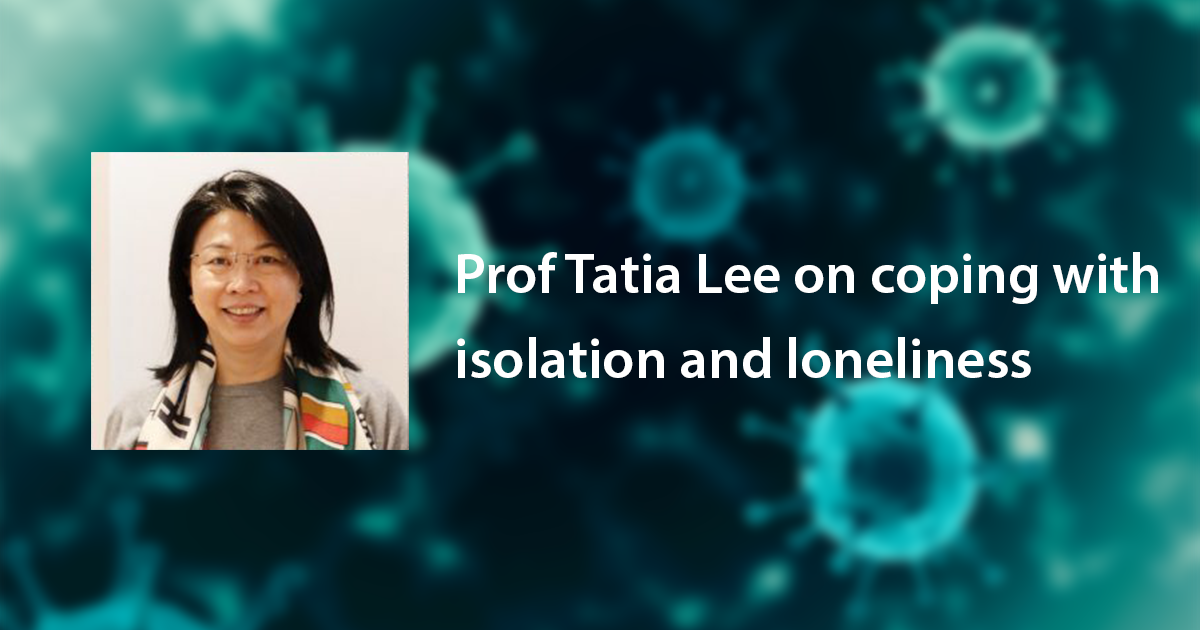
On April 30, 2020, fightcovid19.hku.hk conducted a live conversation with Professor Tatia Lee, Chair Professor of Psychology and May Professor in Neuropsychology at The University of Hong Kong on coping with isolation and loneliness in regard to the COVID-19 pandemic.
Note: In this transcript of their dialogue, Professor Sri Sreenivasan is informally identified as Sree and Professor Tatia Lee is Tatia; the transcript has been edited for readability and length.
Sree: Today, we discuss issues of mental health — loneliness, depression, and so many things people around the world are wrestling with during the pandemic. We have the perfect guest for this, Professor Tatia Lee, Chair Professor of Psychology and May Professor in Neuropsychology at the University of Hong Kong. Her research interests include normal and abnormal cognition and emotion. She’s recently focused on devising evidence-based interventions for promoting brain health and exploring the neural underpinnings of higher cognition in the frontal lobe of the human brain, the area that directs complex human behaviors, including planning and personality development. For her full bio, see here
Sree: Good evening from New York. Good morning in Hong Kong. How is life on campus?
Tatia: Life is very quiet on campus because today is a public holiday. The situation in Hong Kong is improving, but people should continue to maintain social distancing to protect themselves from COVID-19.
NEUROSCIENCE AND COVID-19
Sree: Your research has focused on neuroscience. Can you explain what that is? How does neuroscience relate to everyday life and with COVID-19?
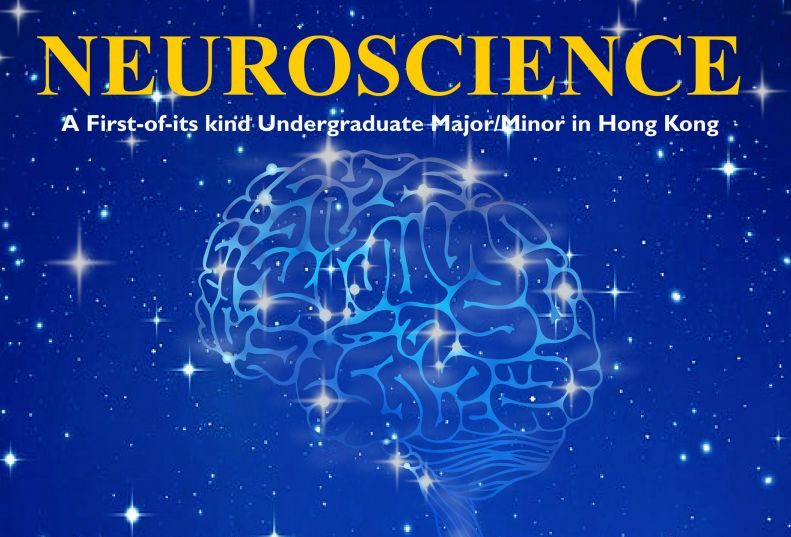
Tatia: Neuroscience is a science of studying brain function. The brain is a very important organ because it defines who we are and regulates our functioning and behaviors. It is also a very malleable organ, meaning that it can change its structure, function and activity according to everyday experiences. In that sense, the experiences we have during the COVID-19 pandemic will make changes to our brain; that is why neuroscience is very applicable to understanding COVID-19.
Sree: We have people watching from around the world. Marc Lee from Durham, North Carolina. Mukhtar from Nairobi and David from Malaysia. To all, please post your comments as we discuss this topic because many are interested. Professor, what do you think of the value of these kinds of conversations?
Tatia: Absolutely important. There are a lot of rumors around and the way to dispel rumors is by scientific evidence. Platforms like this help disseminate correct information, which can alleviate some of the unnecessary worries among people surviving under the shadow of the COVID-19 pandemic.
Sree: Has enough attention been paid to the psychological impact of COVID-19? And what are those impacts taking place now?
Tatia: Whenever we face something potentially life-threatening the priority is usually placed on physical health and safety. Therefore, it is inevitable that the psychological impacts associated with COVID-19 are being neglected in the first place. But we need to understand these will have long-lasting effects on our mental well-being, because each leaves marks on our brains that affect our functioning and our behaviors.
THE EMOTIONS OF CHANGE
Sree: How does loneliness affect our brain? We’re all experiencing a kind of loneliness factor in different ways because of social distancing.
Tatia: Our research evidence shows that loneliness is associated with change. A widespread brain network or circuitry is associated with a process of executive control and affective regulation, meaning that the sense-of-loneliness impact will have reflection from the functional organization of the brain. In fact, in vulnerable older people, they do present with a loneliness-related neural network for processing negative emotion. We believe that it is this specific processing that reinforced our views of their negative views of their lives, and that may precipitate, predispose or maintain depression.
Sree: We’ve got a chart that reflects daily emotional experiences of US adults from January to April; the green line is enjoyment, the blue is worry, and the gray is stress. Look how it all collapsed together in one place — enjoyment, worry, and stress. What does this teach us, Professor?
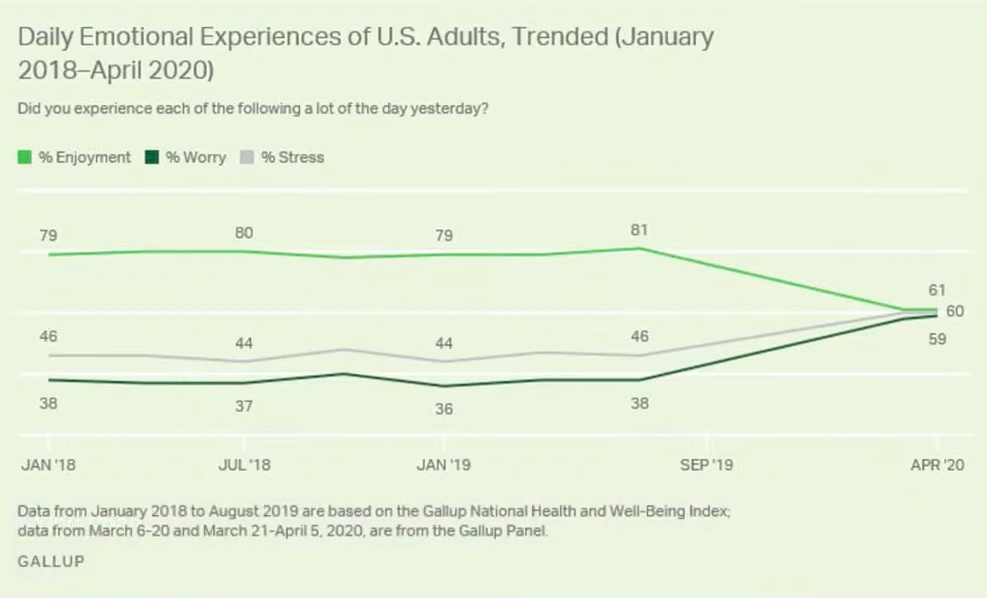
Tatia: It is informing us that the stress and sense of loneliness induced by social isolation, and also the worry about contracting the virus, are causing a stress response in people’s lives. For a short amount of time, we have the resilience to withstand that. But this COVID-19 pandemic has been going on for a few months, and that chart shows people are getting a bit stressed out.
Sree: One of the shocking things for many is how much frontline health care workers are being affected by this — for example, the tragic story in New York of a doctor who was working on the front lines in the emergency room every day, 12 hours a day. She contracted COVID-19 and when she recovered, she went back to work, but shortly afterward she committed suicide. Could COVID-19 have altered or affected her brain?
Tatia: I’m not a medical doctor and cannot say whether a virus causes a change to the brain. I guess it’s the stress of taking care of patients; it could have caused stress-related symptoms of depression. Among all the depression-related symptoms, the worst case would be the presentation of suicidal ideation.
Sree: What do you advise people on the frontlines about how to deal with the stress they feel?
Tatia: It’s important we listen to our body. If we feel really stressed out, we shouldn’t continue working; we should give ourselves a break when the body gives us a signal to stop. Earlier, you asked whether COVID-19 will change the brain and as I said, I don’t know, but I do know that stress will change the brain. Prolonged stress would change our way of thinking about seeing life and that can lead to a kind of negative bias, and that can predispose us to have a suicidal ideation.
Sree: Does the internet also have negative effects on other aspects of life we are experiencing during the pandemic?
Tatia: That depends on how you use the internet. Given the city lockdown and everything else going on, using the internet helps with creating avenues for social connectedness. So in this regard, I would say the internet and social media are really beneficial.
Sree: Ramy Inocensio, a CBS News Asia correspondent, asks, “How do we even know we’re depressed and not just tired or being affected by something else?”
Tatia: If we are tired, our energy level will resume to the normal limits with some rest. But if we are depressed, or our energy level is low most of the time, it won’t be just feeling tiredness. We will experience sleep disturbance and be more irritable. We will also lose our interest in things we enjoy. We feel we are guilty of everything and have very low self esteem, and we will cry easily and as I said earlier, the worst case of all is that we will have some suicidal ideation.
Sree: Once someone starts that ideation and is conscious of it, how do they pull back? What should be the first two or three things you do?
Tatia: Seek help. Seek professional help. That is very, very important. Let your family members and your loved ones know you’re in trouble. Don’t think you can cope with it yourself. Sometimes the mood can change very dramatically without conscious notice and things could go on an irreversible path.
Sree: There are lots of suicide help lines in almost every country. Are some countries doing better at suicide prevention than others?
Tatia: I can’t say some countries are doing better. When a person is on the verge of having suicidal ideation and of thinking about committing suicide, sometimes that moment of help will be able to revert the whole course. So that’s why seeking help is very important and reaching out for help is very important.
SOCIAL ANIMALS, SOCIAL INTERACTION
Sree: Another audience member asks, “What are your views on how social distancing impacts people’s long- term psychological behavior?” My belief is that we as human beings are meant to be close, meant to connect, meant to touch. And here we are in a situation where we can’t really do that. So we’ve never had in at least in the last hundred years, maybe human history, this forced isolation at this global scale.
Tatia: We humans are social animals, so we need social interaction to give meaning to our lives. Without the help of social media and internet access to offset the impact of social distancing, then we’d be in complete lockdown, not a city lockdown, but a personal lockdown. We would not be getting the reward and information we need from social interaction, and that could be very problematic. Social distancing may not be as much of a problem compared to when we didn’t have these media. And how to make good use of it, of course.
Sree: We have a question from Lilian, a Professor at National Taiwan University: What are the support systems and programs which have been introduced to help those coping with isolation in this crisis?
Tatia: There are a lot of self-initiated programs in Hong Kong. It is a small city and the majority of us live in an extended family network, so there’s a lot of self-initiated social support to combat social isolation, especially the detrimental effects it can have on older people. A lot of government social services agencies also have programs.
Sree: We have a question from Ramy, a CBS News correspondent for Asia: “How do you get motivated? Should I just get up and go running? Call a friend?”
Tatia: This is a very good question because for us as human beings, it’s always hard to take the first step. This is the very reason why we have a very evolved frontal lobe. It is the frontal lobe that can ask us to do things against our instinct. For example, our instinct is to want to stay in bed, but the frontal lobe will say, “Come on, wake up, do things.” So what are the things we can do to take the first step? I will say number one, take a deep breath if it’s something really against your will or your instinct. Take a deep breath, calm down and tell yourself that the initial start will be a bit challenging, but once you’ve gone through the initial hump, you will feel much better. Take doing exercise as an example. If you need to start with doing aerobic exercise, you may think, “Oh, it’s very tiring.” But tell yourself that once you get started and reach intensity, which is the threshold for the body to release mood-raising endorphins, you’ll feel much better. Another way is that maybe you can liaise with peers who are also motivated to do the things that you want to do — you can connect via the internet and still social-distance. You can motivate each other and incorporate that into your daily routine; then it will make it much easier to do the task.
THE BRAIN, EXPLAINED
Sree: Let’s look again at the picture of the brain. Can you explain the different parts?

Tatia: The frontal lobe is the greenish gray area. The face of the frontal lobe is where you’ll find your eyes. So, on the screen facing the right side, that is your frontal lobe and that is the front part of the brain.
Sree: Can you explain each of the other four parts that I see?
Tatia: There is a central sulcus, which separates the anterior part of the brain from the posterior part. Behind the central sulcus is the parietal lobe, and then the occipital lobe, and then the temporal lobe; these are for receiving information from the environment. For example, the occipital lobe decodes information we see. The temporal lobe carries many functions, but one basic function is to decode information we hear. The parietal lobe is for decoding information we sense. The posterior part of the brain integrates information that comes in from the outside world; once it acquires understanding of what’s happening in the external environment, it sends the information to the frontal lobe, where we do all the planning and probability-checking and decision-making to decide on a cause of action. Just in front of the frontal lobe is a motor area, but farther in front of the frontal lobe is a very important area for our human function. And it’s the most evolved area, proportionately, in the whole primate family because we humans have a very highly evolved prefrontal area. That’s why we can do a lot of abstract reasoning. We can manipulate and change the world; we can build and we can destroy.
Sree: Tell me how you interact with your patients. How do you have time for them? Are you practicing every day every week? How do you have your own patients while you work with the university?
Tatia: I carry a clinical load, but not a heavy one. It fulfills my passion for clinical work, but also updates my clinical skills for clinical teaching and patient contact. I’m a clinical neuropsychologist so the type of patients I see mostly are people with brain injuries or brain-related problems. But I also see patients that suffer from problems of anxiety and depression.
COGNITIVE AND PHYSICAL EXERCISE
Sree: We have a question coming in from Facebook. Would the brain hurt caused by stress be forever, or just temporary.
Tatia: The brain is a highly resilient organ and the stress does affect the structure and activity of the brain, but just for a short pause; the brain is very capable of bouncing back. But if something becomes very chronic, then it will start making changes to the structure and changes to the connection between the neurons to the point that it will be much harder for the brain to reverse it. Having said that, however, our brain is very plastic and the degree of plasticity changes across the lifespan. But even at an older age, our brains remain very plastic. Our brain remains capable of generating a small number of stem cells. As long as we practice strategies that can promote our brain health, such as cognitive exercise, and practice ways to regulate our emotions, we can achieve a healthier life for a longer time.
Sree: We have a question from Twitter: “Have you seen digital health solutions that have been helpful for mental health during the pandemic?” Earlier, we had a similar question about telehealth. Digital health and telehealth are slightly different. Can you talk about those?
Tatia: I don’t have the expertise to differentiate them. But no matter what means we’re talking about, these two means aim at connecting people socially during this period of lockdown or self-isolation. It’s not just internet connection, but also the meaning of that connection. Even a phone call or text message that expresses a sense of concern, an empathic understanding of the worries of the other party, will help us as we work to cope with the psychological effects of COVID-19.
Sree: There’s concern about over-dependence on psychological medicine and intervention.The joke on the Upper West Side of Manhattan in New York City is that it has more psychiatrists per person than anywhere in the world. Whatever, there’s a lot of emphasis on therapy and also medication. Can you compare that emphasis around the world?
Tatia: I’m going to give a common-sense guess. I think the use of medication is a bit more intense in North America than in Hong Kong. I guess this is partially related to cultural differences and the accessibility and advertisement of types of drugs.
Sree: We have comments from Monica Merchandani about the difference between telehealth and digital health. She says telehealth is patient interaction that is not in person and can include phone or video; digital health is any app or tool that tries to help a patient.
Sree: Joe is watching near Atlanta in the United States, and he says: “I’m avoiding too many news programs as it’s creating stress, lack of sleep and nightmares.”
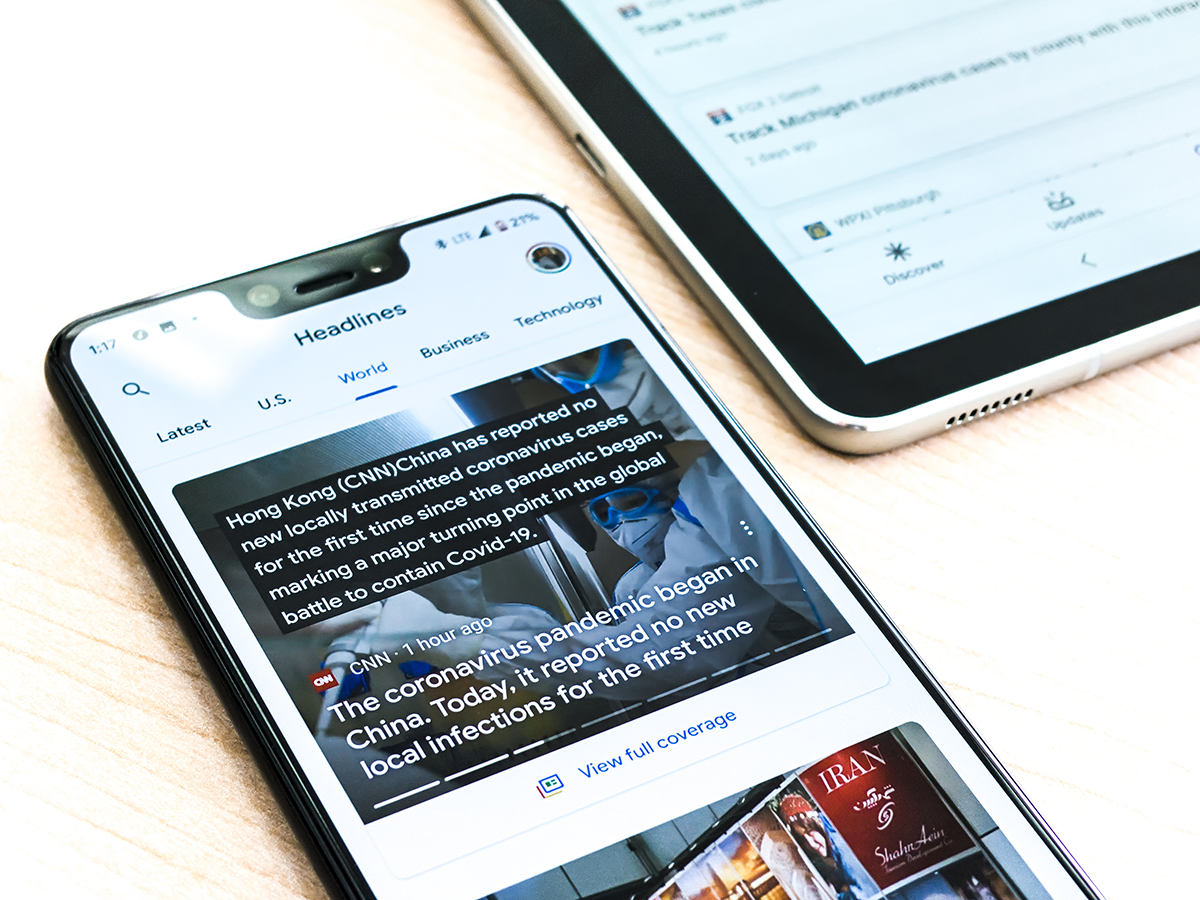
Tatia: We should be cautious about being overly consumed by COVID-19 news. People can be negatively affected. My advice is to balance television or internet news with some other entertainment programs or even your hobbies. Otherwise, the only information we’ll receive in a day is all negative input to our brain.
Sree: Jo Hui asks: “Are there any cognitive or other exercises to overcome the impact of being home bound and having to socially distance?”
Tatia: Cognitive exercise is important, but first of all we should engage in regular physical exercise. Even though we are home bound, we can still do that. There are many cognitive exercises depending on your interests — reading, music appreciation and puzzles. We can play internet group games with a problem-solving element or with a team-playing element. These are all beneficial.
Sree: You use the word “plasticity” a lot. We also hear the word “neuroplasticity.” Tell us what they mean.
Tatia: When I spoke of neuroplasticity earlier, I meant that our brain is very resilient — our brain can change according to experience. The very nature of our brain means we can learn and by learning, we can change the brain and we can change our way of functioning. And this degree of neuroplasticity enables us to build a brain and also to recover from injuries. Without this element, if we suffer injury, there’s no way we can recover. The degree of neuroplasticity changes across the lifespan and we retain it even when we are older, depending on the type of experience and the amount of experience that we input into our brain.
Sree: Here’s another question coming in: “What are the long and short-term psychological problems caused by COVID-19?”
Tatia: Short-term-wise, as I said earlier, there may be stress and fear-related problems — people becoming irritable and causing interpersonal conflicts within their domestic environments as they spend more time at home with their family members. Also, there may be short-term sleep disturbances and differences in sleep patterns due to disruption of daily routines. Over the long haul, if these symptoms continue, then the person may develop stress-related clinical conditions such as depression and anxiety, and at that stage would need medical attention.
Sree: Parbodh Sharma from Riverdale, New York is the father of two physicians on the frontlines of the fight against COVID-10 and he says it’s difficult to explain how stressful these days are for families like his. We know, however, it’s not just families with doctors, but also with police, or firefighters or ambulance workers or grocery store employees and food deliverers. These jobs mean stress for the family. What can they do?
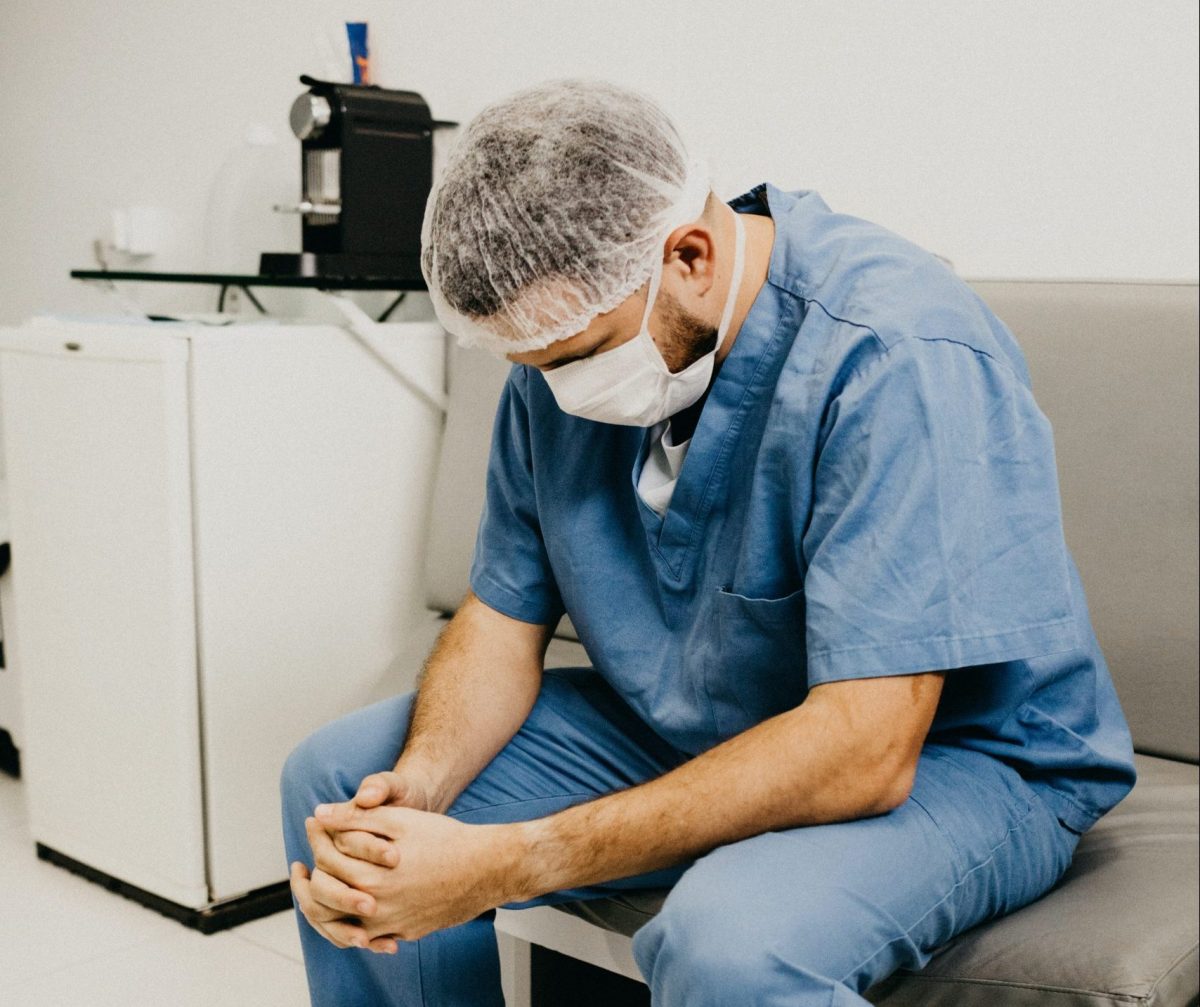
Tatia: It’s definitely stressful for such workers and it may be hard to explain the situation to family members and to young children. The immediate measure is the need to protect yourself, and as I said earlier, be cautious about your body signals. Then later on when the timing is good, you can explain to your family and to children about what you are going through. Then that is the time when each of you will have some personal space to comprehend the effects of the pandemic.
Sree: I’d love to hear about your journey. When did you decide you wanted to be a psychologist? Versus other paths you could have taken in your academic career?
Tatia: I wanted to be a psychologist even when I was in high school; it may have seemed an unusual choice of career path at the time, but I just got that passion.
Sree: What is the hardest part about being a psychologist? And what is something that may surprise people about being a psychologist?
Tatia: You have to be aware that you’re there for your practice and to receive negative information from your patients. I suppose people who are happy, who are very positive, will come to see psychologists, but people who show up at a psychologist’s office usually have issues in their life. So you have to bear in mind that that’s the type of work you face You have to take on all the negative information
I’m also thinking about physical health and psychological health, which are two very interlocking and interactive components of our bodily functioning, and they influence each other. For example, high stress negatively affects physical health, and then our immune functioning. The psychological world of a person is the most private part of that person. Clinical psychology enables me to provide support to people so that they can maximize their potential and they can be what they enjoy being, and what they would like themselves to be.
Sree: What do you do to keep your brain healthy?
Tatia: I do exercise. As professionals, we want to be able to advise people to practice good lifestyles, and so I practice regular exercise. And I also practice a positive way of seeing things. Most importantly, I’m grateful for what I have. I’m grateful that every day I can take my first breath and I’m still alive.
Sree: That’s a very positive outlook! Leave it to a psychologist to come up with that!
STOP AND WALK AWAY
Sree: How can people avoid domestic violence during this homebound period? It feels now like the stress level has been amped up and everybody’s crowded in, like they’re all on top of each other.
Tatia: In a locked-down domestic environment, the person who can become the focus of your temper is your loved one. So if one party realizes that the other is about to be provoked, then they should stop and walk away, or if the other party feels that their temper is really coming on, then they stop and walk away, have a drink of cold water and think about other things. When the two parties cool down, then maybe that’s a time to discuss their concerns and worries, and to resolve conflicts.
Sree: What can people do about the frustration they may feel when they see different rules in different places. “My town is locked,” someone might say, “but the state is open. How is that possible? How do I deal with it? How do I explain to my children when they see on TV that people are going to the beach and I’m telling them they have to stay locked down?”
Tatia: Feeling negative about something — such as feeling somebody’s getting better treatment than you — is not going to help your mental well-being because you are using your energy to make that comparison. And you’re not going to change whatever treatment the other person is receiving. So I would instead use the energy to promote my own mental health and establish a daily routine and keep a normal sleep-wake cycle. And exercise regularly, both cognitively and physically. And as I said earlier, don’t be overly consumed by the news of COVID-19; very importantly, communicate with a loved one or your friends, share your worries and discuss the best coping strategies.
Sree: Do you have a final thought you would like to share?
Tatia: I hope that we can dispel our negative thoughts and negative feelings about what we don’t have and instead join hands to build what is not there. In Hong Kong, the situation is quite well-controlled because of the joint efforts of all parties. But we shouldn’t let our guard down. We shouldn’t be too happy too soon, that the pandemic is gone. We should still be cautious. So again, let’s join hands to fight COVID-19.
Revisit the live show:
